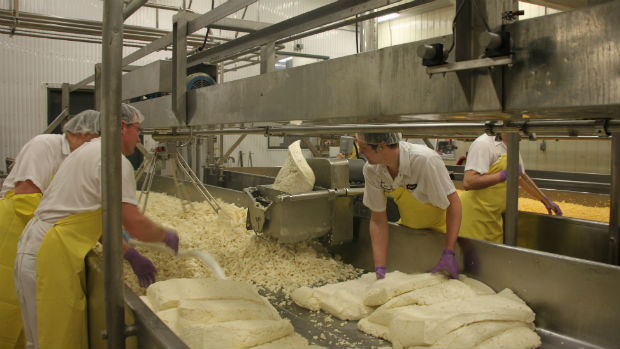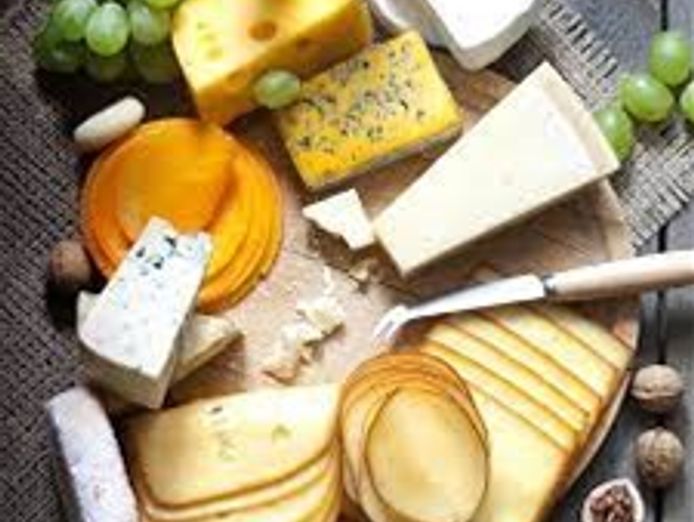Checking Out the Art of Cheese Production: Techniques, Procedures, and Innovations in the Milk Industry
The exploration of cheese production incorporates a diverse selection of strategies and processes that show both historic traditions and modern advancements within the milk sector. By analyzing the elaborate art of fermentation, aging, and contemporary production methods, one gains understanding into exactly how artisans and large producers alike adapt to developing consumer preferences and sustainability challenges. As we consider the effects of these developments, it becomes crucial to question how they will form the future landscape of cheese and its role in our diets and cooking practices.
History of Cheese Making
Tracing its origins to ancient worlds, the background of cheese making reveals an abundant tapestry of cultural and technological evolution. Evidence suggests that cheese production dates back over 7,000 years, with archaeological findings from areas such as Mesopotamia and the Indus Valley showcasing very early milk practices. These cultures used milk from tamed animals, and through natural procedures of fermentation and curdling, they produced primary kinds of cheese.
As people advanced, the art of cheese making became much more improved. The ancient Egyptians and Greeks documented their methods, that included a range of milk resources and varied methods for aging and flavor cheese. The Romans better sophisticated cheese manufacturing, exporting their understanding across Europe, which resulted in regional adjustments and one-of-a-kind selections.
The Middle Ages experienced the establishment of monasteries as centers of cheese production, where monks established distinct recipes that reflected regional tastes and available resources. Throughout the centuries, cheese production has evolved, affected by factors such as location, climate, and cultural practices. This rich background not only highlights the ingenuity of very early societies yet likewise lays the foundation for the diverse cheese varieties took pleasure in today across the world.
Typical Cheese Production Methods
Traditional cheese manufacturing methods incorporate a range of time-honored techniques that have actually been given through generations. These methods, often region-specific, show the one-of-a-kind social heritage connected with cheese-making. The procedure normally starts with sourcing premium milk, which can vary in type depending on the wanted cheese.
Coagulation is accomplished via the enhancement of rennet and often an acid, bring about the formation of curds. The curds are then reduced and delicately stirred, allowing whey to divide. This initial curdling phase is essential, as it affects the texture and wetness web content of the last product.

Fermentation and Aging Procedures
Fermentation and aging procedures are important to the advancement of cheese, happening after the first curdling and pressing phases. Throughout fermentation, details bacterial societies are presented to the curds, assisting in the conversion of lactose into lactic acid. This level of acidity not just helps in curd conservation however likewise contributes to the taste account and texture of the final product.
As the cheese ages, biochemical reactions proceed to take location, affecting its taste, scent, and structure. Various cheeses call for varying aging durations, which can range from a couple of weeks to several years, leading to distinctive attributes.
Furthermore, the presence of article source molds or yeasts on the cheese surface area can better enhance flavor intricacy. For example, blue cheeses depend on details mold and mildew societies to develop their trademark preference profiles. Overall, both fermentation and aging are important in specifying the individuality of cheeses, enabling craftsmens to develop a diverse variety of items that cater to a vast array of tastes buds.
Modern Technologies in Dairy Products Production
Innovations in milk manufacturing have changed the cheese-making process, boosting effectiveness and item quality. Technical innovations, such as automated milking systems and accuracy fermentation techniques, have streamlined operations and boosted consistency in raw milk top quality. These systems decrease labor prices and improve pet well-being by enabling more comfortable and effective bleeding methods.
In addition, the consolidation of information analytics and IoT (Web of Things) devices has actually enabled milk manufacturers to check different specifications, such as temperature and humidity, in real-time. cheese factory melbourne. This ability guarantees optimal conditions throughout the cheese-making process, leading to a greater high quality end item
In addition, technologies in pasteurization techniques, including high-temperature short-time (HTST) pasteurization, have not only raised food safety and security but likewise preserved the fragile flavors and nutrients inherent in milk.
Lasting practices are also obtaining traction, with developments in waste management and renewable resource usage. Many producers are now harnessing biogas from milk waste, advertising environmental stewardship while simultaneously reducing operational expenses.
These contemporary technologies collectively contribute to a much more effective, sustainable, and high-grade cheese manufacturing process, setting brand-new standards in the dairy products sector.
Future Trends in Cheese Sector
As celebrity industry continues to develop, arising trends are reshaping manufacturing, consumption, and advertising approaches. One substantial trend is the growing need for artisanal and specialty look at this now cheeses, driven by consumers seeking special flavors and high-quality components. This change is motivating visite site producers to embrace traditional approaches while incorporating modern innovation for improved quality assurance.
Sustainability remains at the leading edge of customer preferences, prompting makers to discover eco-friendly practices, such as minimizing water use, maximizing energy consumption, and utilizing biodegradable packaging materials. Additionally, advancements in plant-based cheese options are broadening market chances, catering to the increasing number of vegan and lactose-intolerant customers.
Moreover, electronic advertising and marketing and e-commerce are changing exactly how cheese is marketed and marketed, enabling manufacturers to connect directly with customers and customize their offerings to particular demographics. Registration services and on-line platforms are coming to be prominent channels for cheese distribution, enhancing accessibility and convenience.
Last but not least, health-conscious trends are influencing cheese solutions, with manufacturers developing lower-fat, lower-sodium, and nutrient-enriched alternatives to fulfill consumer needs. As these patterns proceed to unfold, celebrity industry is most likely to witness a dynamic improvement that straightens with modern-day consumer values and preferences.

Verdict
The exploration of cheese manufacturing discloses a complicated interplay of time-honored strategies and modern technologies. Typical approaches, rooted in historical practices, remain to influence modern production while adapting to advancing customer preferences. Fermentation and aging procedures stay essential to taste advancement, while improvements in innovation improve effectiveness and sustainability. As the dairy products market embraces health-conscious patterns and eco-friendly practices, the future of cheese production guarantees ongoing development and advancement, guaranteeing its enduring value in culinary culture.